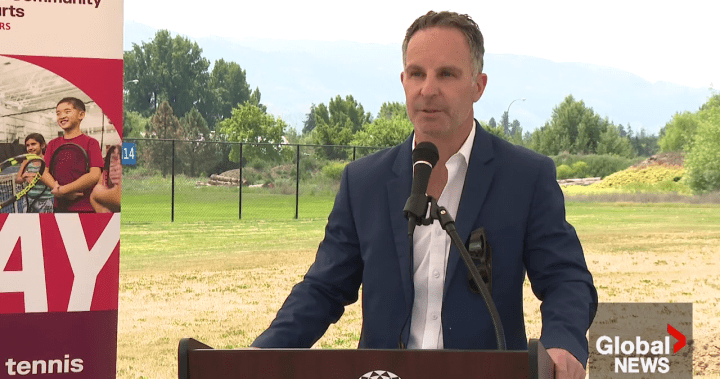The recent disclosure of Kelowna City Manager Doug Gilchrist’s $382,000 annual compensation package has ignited a firestorm of debate across the Okanagan Valley and beyond. As residents face increasing property taxes and housing affordability challenges, the revelation of such substantial executive remuneration has many questioning municipal spending priorities in British Columbia’s fastest-growing city.
Walking through Kelowna’s downtown core yesterday, I encountered Maria Sanchez, a small business owner who has operated her café for 12 years. “We’ve seen our property taxes jump nearly 9% this year alone, while struggling to keep staff who can’t afford rent here anymore,” she told me, gesturing toward City Hall. “Then we find out the top bureaucrat makes more than the Prime Minister? It just doesn’t feel right.”
Gilchrist’s compensation package, which includes a base salary of $305,000 plus benefits and pension contributions, exceeds that of both Premier David Eby and Prime Minister Justin Trudeau. According to the Canadian Taxpayers Federation‘s latest figures, Trudeau earns approximately $379,000 annually, while Eby receives about $211,000.
The City of Kelowna has defended the compensation level, noting that Gilchrist oversees a $477 million operating budget and manages more than 1,000 employees. Mayor Tom Dyas told Global News last week that “recruiting and retaining top talent requires competitive compensation,” adding that Gilchrist’s performance “has been exceptional during challenging economic times.”
But this explanation hasn’t satisfied many local taxpayers or fiscal watchdogs. Franco Terrazzano, Federal Director of the Canadian Taxpayers Federation, has been particularly vocal. “When municipal executives are making more than the people running entire provinces or the country, taxpayers are right to question whether they’re getting value for money,” he said during our phone conversation Tuesday.
The salary controversy emerges against a backdrop of significant affordability challenges in Kelowna. The city’s housing prices have increased by approximately 67% over the past five years, according to the Okanagan Mainline Real Estate Board, while rental vacancy rates hover below 1%. Meanwhile, city council approved a 4.76% property tax increase for 2023.
At last week’s council meeting, which I attended, several residents expressed frustration during the public comment period. Robert Huang, a 15-year resident and retired accountant, questioned the council directly: “How can you justify these executive salaries when seniors on fixed incomes are being taxed out of their homes?”
Councillor Loyal Wooldridge attempted to contextualize the city manager’s compensation, noting that “Kelowna competes with other major municipalities for administrative talent.” He pointed to Vancouver’s city manager, who reportedly earns over $400,000 annually.
This argument hasn’t gained much traction with local advocacy groups. The Kelowna Taxpayers Association, which has grown its membership substantially in recent months, released a statement calling for “salary caps aligned with the economic realities faced by the citizens who fund these positions.”
A deeper look at the numbers reveals some interesting patterns. According to the province’s financial disclosure requirements, municipal executive compensation in B.C. has outpaced inflation by approximately 3.2% annually since 2015. During the same period, median household income in Kelowna rose by just 1.8% per year, based on Statistics Canada data.
Dr. Eleanor Matthews, who teaches public administration at UBC Okanagan, suggests this discrepancy reflects broader governance questions. “There’s an increasing disconnect between municipal leadership compensation and community economic indicators,” she explained when we met at her campus office. “This creates not just financial tension, but also erodes public trust in local government.”
Some context is important here. Kelowna has undergone tremendous growth and transformation, expanding from a seasonal tourist destination to a year-round economic hub with complex infrastructure and service needs. The city’s population has swelled by nearly 14% since 2016, creating significant management challenges.
City councillor Luke Stack emphasized this point during our conversation at City Hall. “The complexity of running Kelowna today versus even ten years ago is night and day,” he said. “We’re dealing with homelessness, climate adaptation, aging infrastructure, and rapid growth all simultaneously.”
Nevertheless, the optics remain problematic for many residents. At Stuart Park yesterday afternoon, I spoke with James Wilson, a construction worker who has lived in Kelowna for 23 years. “I’m working two jobs to cover my mortgage, and the city keeps taking more in taxes,” he said. “Then I learn the big boss at city hall makes in a month what takes me half a year? Something’s not adding up.”
The controversy has prompted calls for greater transparency in how executive compensation is determined. Currently, the city council approves the city manager’s salary based on recommendations from human resources consultants and comparative market analysis. Critics argue this process happens with minimal public input or scrutiny.
Mayor Dyas has promised to address these concerns at the next council meeting, scheduled for next Tuesday. “We hear the public’s frustration, and we take it seriously,” he stated in a press release issued Wednesday. “We’re committed to reviewing our compensation practices with transparency and accountability in mind.”
As Kelowna continues to navigate its growing pains, this salary controversy touches on fundamental questions about public service, fair compensation, and government accountability. The debate reflects broader tensions surfacing in communities across Canada, where municipal leadership must balance competitive talent recruitment against public perception and taxpayer capacity.
For residents like Maria Sanchez, the café owner I met downtown, the resolution of this controversy will signal something important about local democracy. “We’re not against people being paid well for important work,” she told me before returning to her busy shop. “But we need to know those making decisions about our tax dollars understand what life is really like for the rest of us.”






